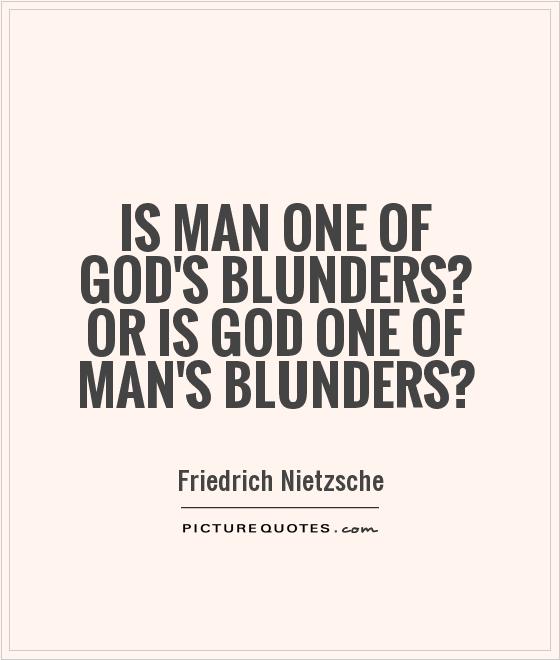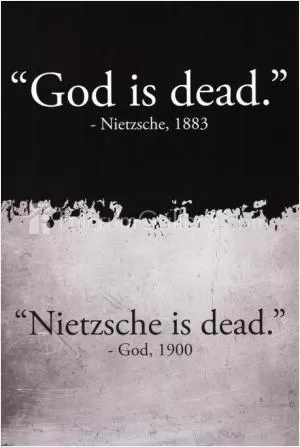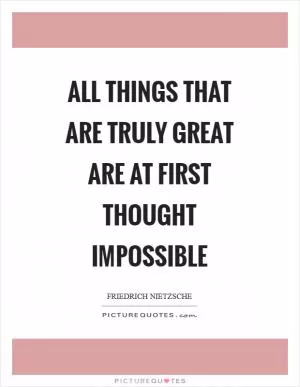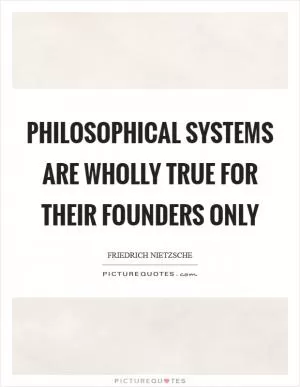Is man one of God's blunders? Or is God one of man's blunders?

Is man one of God's blunders? Or is God one of man's blunders?
Friedrich Nietzsche, a German philosopher known for his controversial and provocative ideas, posed the question: “Is man one of God's blunders? Or is God one of man's blunders?” This question challenges traditional religious beliefs and raises important philosophical inquiries about the nature of humanity and the existence of God.Nietzsche was a critic of organized religion, particularly Christianity, which he believed stifled individual creativity and autonomy. He argued that the concept of God as a divine creator was a human invention designed to control and manipulate people. In his view, the idea of God as a perfect being who created man in his image was a delusion that prevented individuals from realizing their true potential.
Nietzsche's question about whether man is a mistake made by God or vice versa reflects his skepticism towards traditional religious teachings. He believed that human beings were not created by a benevolent deity but rather evolved through natural processes. This perspective challenges the notion of humans as special creations and raises doubts about the existence of a higher power.
Furthermore, Nietzsche's question can be interpreted as a critique of the human tendency to project their own flaws and shortcomings onto a divine being. By questioning whether God is a mistake made by man, Nietzsche suggests that humans may have created a flawed image of God based on their own limitations and biases. This idea challenges the traditional view of God as a perfect and infallible being and raises important questions about the nature of divinity.
Overall, Nietzsche's question about whether man is one of God's blunders or vice versa challenges traditional religious beliefs and encourages individuals to think critically about the nature of humanity and the existence of God. By questioning the origins of human beings and the concept of a divine creator, Nietzsche invites us to reconsider our assumptions about the nature of reality and the role of religion in shaping our understanding of the world.












 Friendship Quotes
Friendship Quotes Love Quotes
Love Quotes Life Quotes
Life Quotes Funny Quotes
Funny Quotes Motivational Quotes
Motivational Quotes Inspirational Quotes
Inspirational Quotes